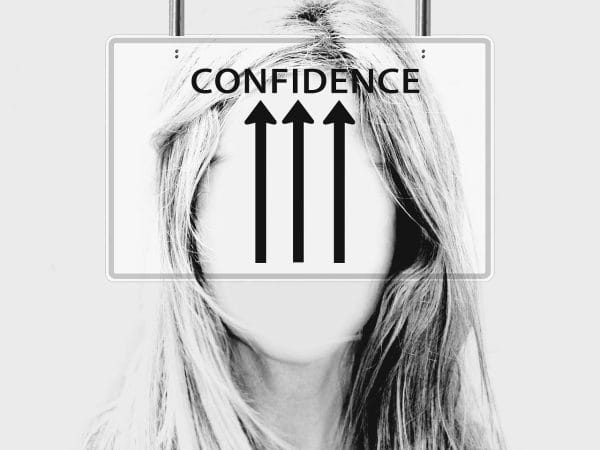Understanding Parental Alienation in Virginia
Parental alienation is a distressing phenomenon that can emerge during or after a contentious divorce or separation. It occurs when one parent intentionally or unintentionally influences their child to reject, fear, or show unwarranted hostility towards the other parent. Understanding the intricacies of parental alienation in Virginia, including how it is viewed and handled in the legal system, is crucial for parents and professionals who work with families going through separation or divorce.

What is Parental Alienation?
![]()
Parental alienation involves a set of behaviors that one parent may exhibit to undermine and interfere with a child’s relationship with the other parent. This can include speaking negatively about the other parent, limiting contact, creating the impression that the other parent is dangerous or unloving, or even convincing the child to reject the other parent entirely.
The Legal Perspective on Parental Alienation in Virginia
![]()
In Virginia, as in many other states, the court’s primary concern in custody cases is the best interests of the child. Virginia law does not explicitly mention parental alienation, but family courts recognize its potential harm to children’s emotional well-being. As such, alleged instances of parental alienation are taken seriously and can impact custody decisions.
Virginia Case Law and Parental Alienation
Virginia case law parental alienation examples underscore the court’s approach to these matters. While specific statutes may not address parental alienation, case law provides insights into how Virginia courts have dealt with allegations of alienating behaviors. Judges have the discretion to consider these behaviors as one of many factors that could affect the determination of a child’s best interests.
Signs and Symptoms of Parental Alienation
![]()
Identifying parental alienation can be challenging, but certain signs may indicate its presence:
- A child consistently denigrates or rejects one parent without legitimate justification.
- A child displays strong resistance or refusal to visit or communicate with one parent.
- One parent is overly protective or isolates the child from the other parent without cause.
- A child parrots the alienating parent’s negative statements about the other parent.
- A child’s animosity towards one parent lacks credible basis and is disproportionate to the child’s experiences with that parent.
These behaviors, especially when they arise suddenly or escalate during a custody dispute, may warrant closer examination by the court, child psychologists, and legal professionals.
Addressing Parental Alienation in Virginia
![]()
When parental alienation is suspected or alleged in a Virginia custody case, several steps may be taken to address the issue:
- Thorough Investigation: Courts may order a psychological evaluation or appoint a guardian ad litem to investigate the child’s situation and recommend solutions.
- Modification of Custody Orders: If evidence of alienation is substantial, a judge may alter custody arrangements to protect the child’s relationship with both parents.
- Family Therapy: Courts often recommend therapy for the child and the alienated parent, and sometimes for the entire family, to repair and rebuild relationships.
- Parenting Education: The alienating parent may be required to attend parenting classes or counseling to understand the impact of their behavior on the child.
Each case of suspected parental alienation is unique and requires careful consideration of the child’s needs and the family dynamics.
Preventing Parental Alienation
![]()
Prevention is always better than cure, especially in the context of parental alienation. Here are some strategies to help prevent this harmful behavior:
- Encouraging Open Communication: Parents should foster an environment where children feel comfortable expressing their feelings without fear of retribution or pressure.
- Maintaining Respectful Interactions: Parents need to show mutual respect in front of their children, even if they disagree privately.
- Seeking Mediation or Counseling: Professional assistance can help parents navigate their separation or divorce in a way that minimizes conflict and focuses on co-parenting.
- Staying Informed: Educating oneself about the signs and consequences of parental alienation can help prevent inadvertent behaviors that could harm the parent-child relationship.
It is imperative for parents to prioritize their children’s emotional and psychological health during and after a separation or divorce.
Case Studies and Outcomes
![]()
Case studies and outcomes of Virginia case law parental alienation can illustrate the complexities of these situations. For instance, in some cases, the court has found that the alienating behaviors were so severe that the child’s best interests were served by awarding sole custody to the alienated parent. In other cases, joint custody was maintained, but with specific provisions to address and mitigate the alienating behaviors.
Understanding these outcomes can help parents and legal professionals anticipate the potential consequences of parental alienation and work proactively to prevent or address it.
Frequently Asked Questions
![]()
How does Virginia law recognize parental alienation?
Virginia law does not have specific statutes labeled as “parental alienation,” but it does recognize actions that can harm a child’s emotional well-being. Courts consider the best interests of the child, and alienating behaviors can influence custody and visitation decisions.
Can I modify custody if my ex is alienating my child from me?
Yes, you can seek to modify custody if you believe your child is being alienated from you. You would need to provide evidence that the alienating behavior is harming your child’s relationship with you and that a change in custody would be in the child’s best interest.
What evidence do I need to prove parental alienation in court?
Evidence can include communication records (texts, emails, etc.), witness testimony, psychological evaluations, and documentation of the child’s behavior changes. It’s important to have detailed records showing a pattern of alienating behavior.
How can I prevent parental alienation during my divorce?
Open communication, co-parenting classes, and therapy can help prevent parental alienation. Having a detailed parenting plan that focuses on the child’s best interests can also help. It’s important to remain actively involved in your child’s life and to address any concerns with the court promptly.
What should I do if I suspect my child is being turned against me?
If you suspect parental alienation, document any incidents that support your suspicion. Seek the help of a family law attorney, and consider requesting a court-ordered evaluation or therapy for your child. It’s crucial to stay calm and avoid retaliating in kind.
Can a child refuse visitation because of parental alienation?
A child may refuse visitation due to alienation, but this isn’t legal grounds for stopping visitation. If this occurs, address the issue through the legal system. A judge may need to intervene to ensure that the visitation order is enforced.
Will the court listen to my child’s preference about custody?
Courts may consider the child’s preference, depending on their age and maturity. However, if the court believes the preference is the result of alienation, they may give it less weight and take steps to protect the child’s relationship with both parents.
Can parental alienation affect child support in Virginia?
Parental alienation itself doesn’t directly affect child support obligations. Child support is determined based on the parents’ incomes and the needs of the child, not on the parents’ behavior towards each other.
How can I reunite with my child after parental alienation?
Reuniting with your child after alienation can be challenging. You may need professional help from a therapist who specializes in reunification. It’s also important to be patient and consistent in your efforts to rebuild the relationship, and to avoid speaking negatively about the other parent in front of your child. Legal interventions may also be necessary to address the situation.
What can I do if the court doesn’t believe that parental alienation is occurring?
If the court does not recognize the parental alienation, you can request a second opinion or appeal the decision. It’s crucial to have solid evidence and possibly expert testimony to support your claim. Continuing to document incidents and seeking legal advice is important.
Conclusion: The Importance of Addressing Parental Alienation
![]()
In conclusion, parental alienation in Virginia is a serious concern that can have long-lasting effects on children and families. Recognizing the signs of alienation, understanding its legal implications, and taking appropriate action are essential for protecting the best interests of the child. Family courts in Virginia take allegations of parental alienation seriously and will consider such behavior when making custody determinations.
Through a combination of legal intervention, professional support, and a commitment to the child’s well-being, it is possible to address and overcome the challenges posed by parental alienation. Ultimately, the goal is to ensure that children maintain healthy relationships with both parents, free from manipulation and undue influence.




